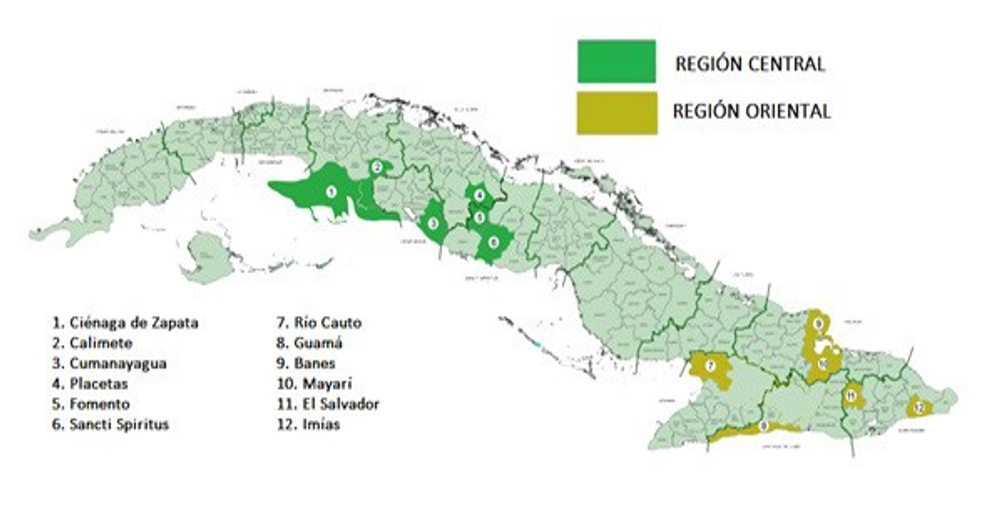Energy transition in rural environments: the experience of the fre local project
Main Article Content
Abstract
Introduction: The needs and opportunities of rural communities in terms of access to energy, entail not only the introduction of renewable energy technologies, but also capacity building, the appropriation of each technology and the gender approach, in search of an inclusive participation of all actors. The University of Sancti Spíritus in Cuba coordinates the local FRE project, which uses as a management tool the Social Intervention Methodology for the socio-technical adaptation of Renewable Energy Sources in rural communities. Objective: To socialise the experience of the local FRE project as a manager of the energy transition in rural environments. Methodology: The methodological conception of Popular Education was assumed, whose dialectic principle: practice-theory-practice transformed allowed to intervene from/with/for the community. And the participatory approach based on the dialogue-reflection-dialogue relationship. Results: The methodology allowed for social intervention mediated by the different actors involved; the comprehensive evaluation of rural communities, from the socio-economic, environmental and technical aspects, with a gender equity approach; and the design and implementation of technologies that take advantage of existing renewable energy sources in 12 municipalities in seven provinces and 21 communities in the country, considering their opportunities and potential. Conclusions and recommendations: The local energy transition project achieves its sustainability, based on the success of the social intervention process by fostering community self-development, participation and social protagonism, from a horizontal and dialogical perspective, which promotes the identity and critical awareness of the inhabitants.
Downloads
Article Details

This work is licensed under a Creative Commons Attribution-NonCommercial 4.0 International License.
References
Campos, A (2023). 15 Tesis sobre transición energética. El diario. https://www.eldiario.es/ultima-llamada/15-tesis-debate-transicion-energetica_132_9910433.amp.html
Consejo de Estado de la República de Cuba. (2019) Decreto-Ley No. 345. Del desarrollo de las fuentes renovables y el uso eficiente de la energía. La Habana: Gaceta Oficial, 28 de noviembre de 2019 (GOC-2019-1063-O95)
FRE local (2019). Proyecto Fuentes Renovables de Energía como apoyo al Desarrollo Local. Project_ID = 00098897 / Output_ID = 00102087.
Martín, A. M. & Leyva, G. (2017). Análisis crítico de la inversión en energías renovables. Enfoque socioeconómico. Revista Cubana de Contabilidad y Finanzas (Cofín Habana), 12(2), 69-90. http://www.cofinhab.uh.cu/index.php/RCCF/article/viewFile/229/221
Martín, A. M., Leyva, G., Hernández, G. & Quesada, F. R. (2019). Estudio del comportamiento de las metodologías nacionales e internacionales para la evaluación de inversiones (19752018). Caso particular: sector renovable. Revista Cubana de Contabilidad y Finanzas (Cofín Habana), 1. http://scielo.sld. cu/pdf/cofin/v13n11/2073-6061-cofin-2013-2001-e2004.pdf
PNDES (2020). Planificación de largo plazo: PNDES 2030. https://observatorioplanificacion.cepal.org/es/sistemas-planificacion/sistema-nacional-de-planificacion-de-cuba
Santos, M. (2019). La evaluación de la intervención social. Enfoques teóricos. Equidad International Welfare Policies and Social Work Journal, 11, 55–90. Doi: https://doi. org/10.15257/ehquidad.2019.0003

